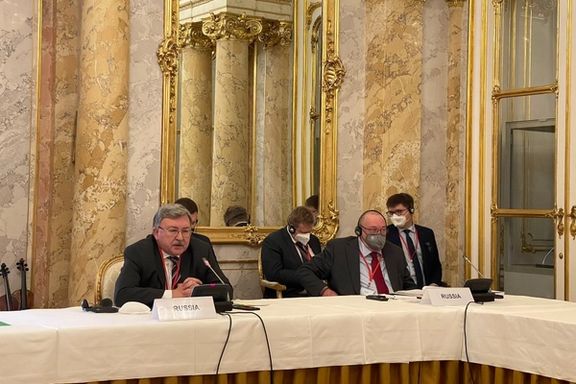Europeans Escalate Criticism Of Iran Over Nuclear Activities

Three European powers warned Tuesday evening that chances of reviving the 2015 Iran deal were quickly diminishing due to Tehran’s “continued nuclear escalation.”

Three European powers warned Tuesday evening that chances of reviving the 2015 Iran deal were quickly diminishing due to Tehran’s “continued nuclear escalation.”
This was the second statement criticizing Iran in one day from France, Germany and the United Kingdom, the three European powers that signed the JCPOA (Joint Comprehensive Plan of Action) alongside China, Russia and the United States in 2015. The US left the deal in 2015 and unilaterally imposed ‘maximum pressure’ sanctions on Iran.
"Iran’s continued nuclear escalation means that we are rapidly reaching the end of the road," the E3 statement said. Tehran had accelerated “the pace of most sensitive violations of the JCPOA,” curtailed monitoring by the International Atomic Energy Agency (IAEA), and left “the international community with less knowledge of the status the Iranian nuclear programme [sic].” This all undermined “international peace and security and the global non-proliferation system.
The statement was issued ahead of the United Nations Security Council discussion of its resolution 2231, passed in 2015 to endorse the JCPOA and which enhanced inspections and required the lifting of most international sanctions on Iran.
Since the US left the JCPOA in 2018 and Iran began to exceed JCPOA nuclear limits the following year, the E3 has placed onus on both the US and Iran to revive the agreement. But Tuesday’s statement made no reference to US ‘maximum pressure’ sanctions.
‘Robust response’
The E3 insisted they remained committed to implementing the JCPOA, and placed responsibility on Tehran to choose between the "collapse of the JCPOA and a fair and comprehensive deal, for the benefit of the Iranian people and nation" while the diplomatic door was "firmly open."
In her speech to the UNSC, Britain's ambassador Barbara Woodward alleged that Iran had introduced "new maximalist demands," many beyond the JCPOA, since talks were suspended in June for Iran’s presidential election.
"If Iran continues its current path of nuclear escalation, in weeks, not months, it will be responsible for collapsing the JCPOA and provoking a serious crisis, which would require a robust response from this Council," she said. The US and Israel have recently been flagging up possible military action against Iran, but Russia and China would be very unlikely to endorse this at the UNSC.
Ali Bagheri-Kani, Iran's lead negotiator in Vienna, tweeted Tuesday that the Europeans were engaged in a "blame game habit instead of real diplomacy" while Iran was "working constructively and flexibly to narrow gaps."
Russia’s ambassador to the International Atomic Energy Agency Mikhail Ulyanov quoted Bagheri-Kani's tweet while insisting that all participants in Vienna talks should see diplomacy as a two-way street. "Of course I address these words first of all to myself," he tweeted.
Gaps with IAEA ‘narrow’
Aside from the Vienna talks and the UNSC meeting, Tehran said Tuesday that gaps with the International Atomic Energy Agency (IAEA) over access had narrowed. “I don't want to go into details, but I can anticipate that the two sides reach an understanding soon,” Saeed Khatibzadeh, foreign ministry spokesman told Press TV.
Nournews website, which is affiliated to the Supreme National Security Council, later reported that Iran and the IAEA had reached agreement over the agency replacing and servicing equipment at the Karaj manufacturing plant after Tehran had completed security checks, which followed June’s attack on the facility.
Earlier in the day, Mohammad Eslami, head of the Atomic Energy Organization of Iran, reiterated that IAEA access to a centrifuges manufacturing plant at Karaj was not required under Iran’s safeguards agreement of the Nuclear Non-Proliferation treaty (NPT). IAEA chief Rafael Mariano Grossi has said access to service monitoring equipment was agreed by Tehran in September in the latest temporary arrangement following Iran’s decision early in 2021 − following attacks on its nuclear sites and continuing US sanctions − to limit IAEA access to that required under the JCPOA.
"When they do not fulfill their commitments and impose harsh, illegal and unjust sanctions on Iran and expand them every day, there is no reason to force us to comply with them,” he said. “We act within the framework of IAEA safeguards and NPT and do not accept anything other than that.”